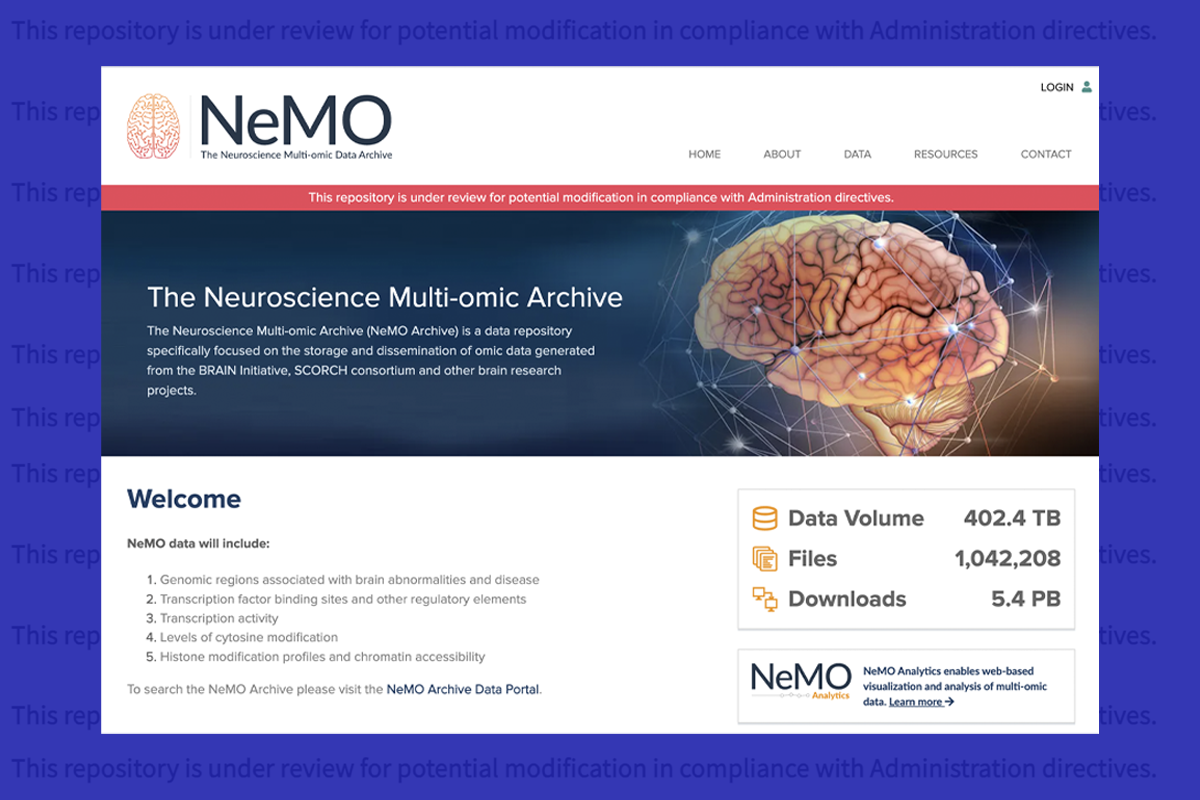The U.S. government is reviewing federally funded repositories of human data to ensure they comply with a recent executive order on gender identity, according to an email reviewed by The Transmitter.
The email, sent in March from U.S. National Institutes of Health (NIH) program officers to multiple scientists associated with the affected repositories, pointed to President Trump’s January Executive Order 14168, which rejects the idea that a person can have a gender identity other than the one that aligns with the sex they were assigned at birth. The move comes after the NIH appeared to archive guidelines that require researchers to include female animals in their studies.
The order, as pointed out in the email, requires federal agencies to “remove all statements, policies, regulations, forms, communications, or other internal and external messages that promote or otherwise inculcate gender ideology.”
The email did not state how the archives should be updated to comply with the executive order. But the idea that researchers are being asked to remove data on gender identity from such databases is “incredibly disturbing” and detrimental to research, says Joshua Gordon, former director of the National Institute of Mental Health (NIMH).
Currently, the NIMH database and others include information on both a person’s sex assigned at birth as well as their gender identity. People whose gender identity does not match their sex assigned at birth tend to be at higher risk for a variety of mental health conditions, along with suicide, Gordon says. But without data on gender identity, researchers cannot study such links, he adds.
“Whether or not you believe that those categories are biologically true or are societally induced—it doesn’t matter. Those categories identify a group of people who are at very high risk and need help,” Gordon says. “By preventing us from collecting and sharing that data, the administration would be preventing these people from getting the help they need.”
F
or now, researchers who maintain repositories of human data have been asked to place a banner on their site with the note: “This repository is under review for potential modification in compliance with Administration directives,” the email states. At least 34 online archives—including the National Institute of Mental Health Data Archive, the National Institute of Neurological Disorders and Stroke (NINDS) Biorepositories, the National Alzheimer’s Coordinating Center, OpenNeuro, and the Neuroscience Multi-omic (NeMO) Archive—have added such a banner to their website. The appearance of these banners—but not the reason behind them—was previously reported by 404 Media.When asked for comment, Owen White, principal investigator for the NeMO Archive, wrote via email: “We can confirm we are addressing access to the NeMO Archive in response to requests from NIH to improve our security measures to protect human data. We anticipate review of our operations will continue to occur for some time in partnership with authorities at NIH.”
Access to the NeMO Archive was down at the time of this article’s publication, but it is unclear whether the outage is related to the data review. White and others associated with the archive declined to respond to further requests for comment. Other repositories under review appear to be functional.
Current representatives at the NIMH, the NINDS and more broadly at the NIH did not respond to requests for comment.
If you or someone you know is having suicidal thoughts, help is available. Here is a worldwide directory of resources and hotlines that you can call for support.






